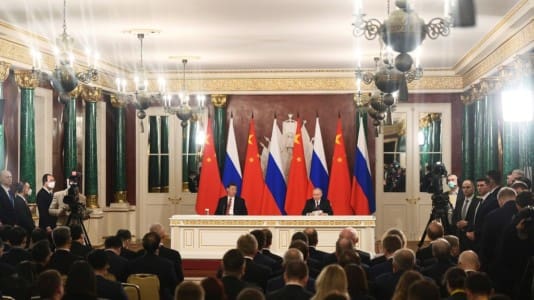The right-wing Confederation party entered parliament in 2019, which was an unpleasant surprise for the ruling conservatives, who had hoped to have a monopoly on the right. However, it did not stop the conservative Law and Justice party (PiS) from having a majority, as Confederation only managed to elect 11 deputies in the 460-seat lower house.
The party was actually a collection of small right-wing parties of libertarian, nationalist and traditional Catholic groups. They are euro-skeptic, highly conservative on common right-wing positions, but free-market in their approach to the economy and libertarian with regard to individual rights.
Until relatively recently, the party was led by a triumvirate of the nationalist Krzysztof Bosak, the party’s presidential candidate in 2020, the veteran libertarian monarchist Janusz Korwin-Mikke, and the radical Catholic nationalist Grzegorz Braun. However, today it is the duo of Bosak and Sławomir Mentzen from the libertarian wing who hold real power in the grouping.
Sławomir Mentzen is the “new kid on the block” — a savvy and slick young lawyer who has been a great hit in social media, especially with the young. Despite the fact that state TV and radio are totally ignoring him and the entire Confederation party, the party is rising in the opinion polls. According to Politico, it now registers 9 percent of the vote, but there are several polls that show it with over 10 percent of support. The policy mix of skepticism toward Ukrainian immigration and Poland’s involvement in the war, together with a radical tax and regulation-cutting agenda, is moving the dial.
If, as is increasingly likely, Confederation comes third in the election and establishes a wedge of around 50 MPs, which will mean it is a probable kingmaker in the lower house of parliament, no government will be able to form without its direct or tacit support.
This is a scenario that is dreaded by the liberal opposition and is not at all welcome by the ruling conservatives either. More and more polls are showing that the four parties that have agreed to form a government after the election — the liberal Civic Platform (PO), the Left, Poland 2050, and the center-right PSL — will not be able to obtain an overall majority in parliament.
This means that the opposition will be faced with a Hobson’s choice of on the one hand allowing the ruling conservative PiS to remain as a minority government or a coalition government with Confederation, or on the other hand, attempting to cut a deal with the radical right.
The opposition’s narrative is that removing the conservative PiS from power is essential for the well-being of both democracy and the country. Therefore, the logic is that the opposition will have to put a clip on its noses and start serious negotiations with Confederation.
No one at this stage wants to talk about a coalition of the liberal opposition and Confederation, but it is the elephant in the room. It is particularly awkward for the liberals, who find nationalism and conservatism so odious. An alliance with nationalists and ultra-Catholics is the stuff of nightmares for most people on the liberal side of the divide.
Realpolitik, however, dictates that they have to factor this into their calculations. The enemy of my enemy is my friend, and therefore Confederation, which may take votes from the conservative PiS and could supply the votes needed in parliament, could in reality be an ally. In such a way, the “radicals” and “fascists” of today may become the “partners” and “realists” of tomorrow.
This is why it is worth watching the climate being created by the liberal press around Confederation over the next few months. This holds for the conservative media too, because if Confederation holding the balance of power becomes a near certainty, the present tactic of just ignoring the party and hoping it will go away simply will not wash.






